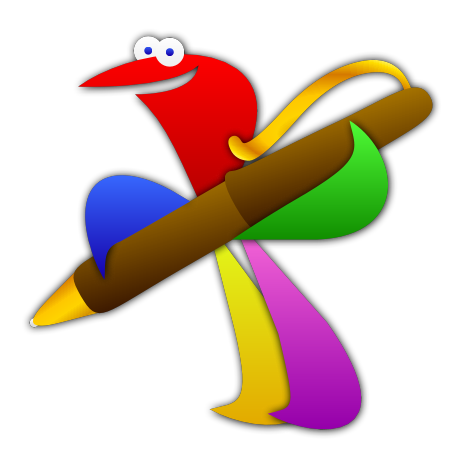Our apps and App Store sandboxing rules
This article has been replaced with a newer, more thorough version, complete with how-to videos for the crossgrade process:
Crossgrade an App Store license to a direct license
Please use that page instead of this one; we’ve left this one here in case it’s linked from any other sites.
As you may be aware, Apple recently began enforcing sandboxing rules on programs in the App Store, including all of Many Tricks’ App Store applications. As a buyer, or prospective buyer, of our App Store programs, we felt it important to let you know how this affects each of our App Store applications. We’ll keep this document updated as we move forward, to reflect changes in either the App Store’s rules, or in our apps relative to their capabilities in the sandboxed App Store.
At present, only one (Name Mangler) of our App Store applications is sandboxed (most can’t be under the current rules), which means two things to you, our customers and prospective customers:
- We are not allowed to add any new features to those applications.
- We are allowed to fix bugs in those applications.
Given we can’t add any features, the future of our apps on the App Store (at least with the rules as they exist today) isn’t all that bright. So what are you to do, if you’ve bought one of the App Store versions (other than Name Mangler 3, which is sandboxed), but want the Cool New Features™ of the latest direct version? Simple: you migrate to the direct version.
Please note that the migrated version of these apps will not be eligible for upgrade pricing if/when a new major version is released. Upgrade pricing is only available to those who purchase the original program directly from us.
How might you do that, you ask? Keep reading, that’s how!
Migrating to the direct sales version of a given app
Converting to the direct sales version for most of our apps is a very simple process; here’s how to do it for any app other than Usher (read on for the Usher details).
Because these instructions work for most of our apps, I’m using NameOfApp as a placeholder for the name of the particular program you wish to convert. If you want to convert Moom, for example, mentally replace (as you read) every instance of ‘NameOfApp’ with ‘Moom.’
- If you haven’t already done so, install the latest App Store version of NameOfApp.
- Run NameOfApp at least one time, then quit NameOfApp.
- Download the direct sales version (i.e. the free trial) of NameOfApp from our site.
- Copy NameOfApp off the disk image, but install it somewhere other than the /Applications folder. In other words, don’t try to replace the App Store version of NameOfApp with the trial version. (This is because Apple applies special permissions to those apps, and you can’t readily overwrite them.)
- Launch the direct sales version NameOfApp.
That’s really all there is to it, you’re now a licensed user of the direct version of NameOfApp. You can tell if you’ve successfully migrated by opening the License window in the program in question; you should see a license that looks like this:

If you don’t see that license, try the process again; if it still doesn’t work, send me an email and we’ll get it sorted out.
If it did work, you can delete (zip, backup, whatever) the App Store version of NameOfApp. Once you’ve done that, move the downloaded (direct sales) version of NameOfApp into your /Applications folder. Again, don’t try to overwrite the App Store version, or it will fail, thanks to Apple’s special permissions.
For Usher users, the process is slightly different. After launching the direct sales version of Usher, select Usher > Buy Usher, and then drag the actual App Store copy of Usher (yes, the application itself) into the “This license could be yours” window. This video demonstrates the conversion procedure.
Note: While this conversion method works quite well, it may have to be repeated at certain points in the future (like after a hard drive format or the purchase of a new Mac). If you do get a new Mac, or reformat your drive, simply follow the above instructions to re-license your direct version.
If you are trying this process on a new Mac, or newly-formatted drive, it’s important that you do not have the direct download version of the app to be converted installed yet—start with a new download from the App Store, which will be free as you’ve bought before. After running that, then install the direct version and you should be ready to go.
We’re working on a one-time method that will be permanent, allowing you to simply back up and restore a license file, which is how it works for our direct customers. Once that method is ready, we’ll update these instructions. In the interim, we will not be providing individual licenses, as we don’t have any automated method of doing so.
App by app comparison, as of Nov 10 2016
Here’s how the direct sales and App Store versions of our non-sandboxed Mac App Store apps (i.e. all but Leech and Name Mangler) compare…
| App Name | App Store Version | Direct Version | Differences |
|---|---|---|---|
| Desktop Curtain | 3.0.7 | 3.0.7 | None |
| Keymo | 1.2.5 | 1.2.5 | None |
| Moom | 3.2.6 | 3.2.6 | None |
| Time Sink | 1.2.6 | 1.2.6 | None |
| Usher | 1.1.14 | 1.1.14 | None |
| Witch | 3.9.9 | 3.9.9 | Spaces are not supported in App Store Witch; you can freely migrate to the direct version if you need Spaces support. |
As time goes by, we’ll keep this list updated if anything changes regarding our apps, so you can always know exactly how the two versions compare.
 Many Tricks
Many Tricks

IT WORKED!!!!!! thank you! (usherHuser)
Just discovered Moom and Desktop Curtain today which is what I was looking for for years! Thanks for developing them. Luckily I clicked on your website link in the MAS and found this page about the benefits of buying direct as opposed to through the MAS. I was almost about to buy it from the MAS because I like the convenience of it remembering all the software I’ve bought and consolidating reminders about app updates. My question is, why isn’t there a disclaimer on the MAS page about the potential disadvantages of buying it through the MAS? Many customers may purchase the MAS version without knowing about some of the disadvantages of of that route.
We’re not allowed to put any sort of disclaimer on the App Store description page — we’re not even allowed to state that the non-App Store version exists.
-rob.
I installed the demo version with `brew cask`. Do I just need to buy a license on your website and I should be fine, or should I uninstall the program and do the procedure you are describing ?
We have no involvement with Homebrew Cask, but assuming it installs the regular demo version of our app, you should just be able to purchase a license; once double-clicked, the license will convert your demo to a full version.
-rob.
Thank you for this great workaround. We’re happy to continue using Moom without Mac App Store limitations (fixed to an Apple-ID, no new features etc.).
Is this page still accurate? Moom on the App Store shows that it was updated in April 2016 and is version 3.2.5.
Sorry, it was out of date — it’s fixed now.
-rob.
Thank YOU! I am immensely grateful for you attention, consideration, information, explanation and invaluable work-arounds and solutions.
~ Kindly,